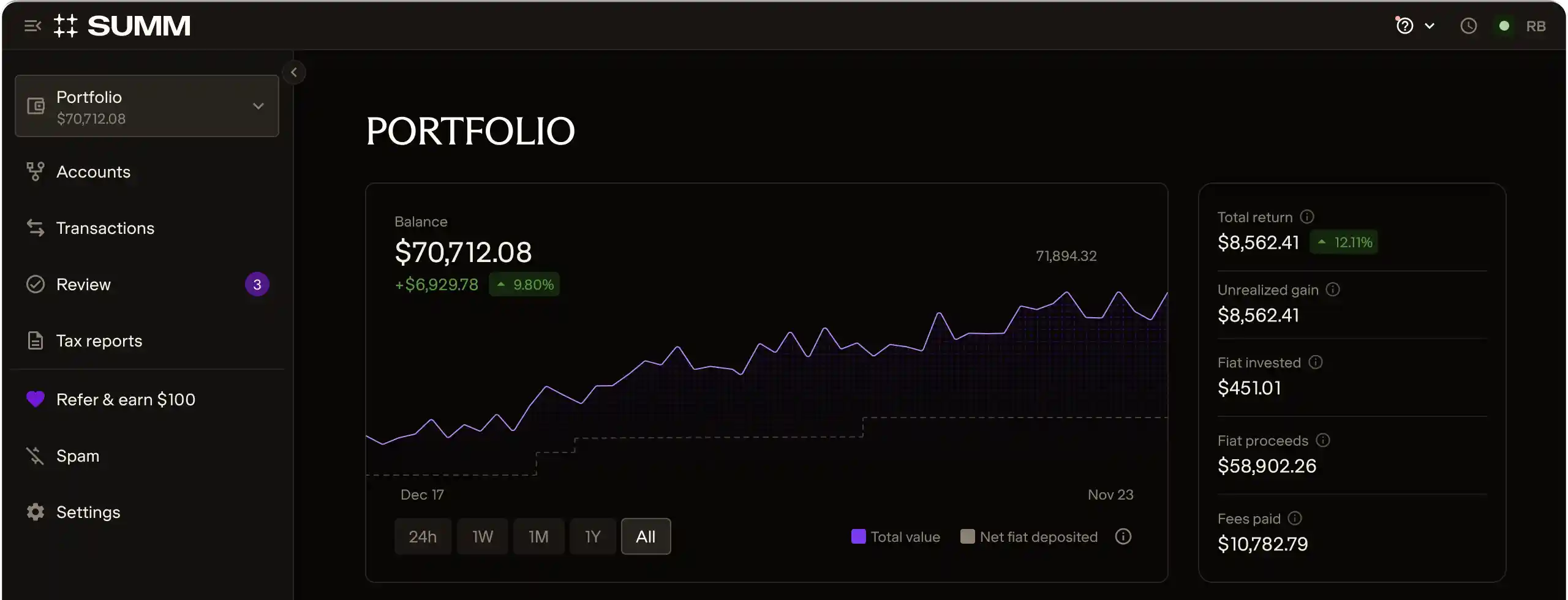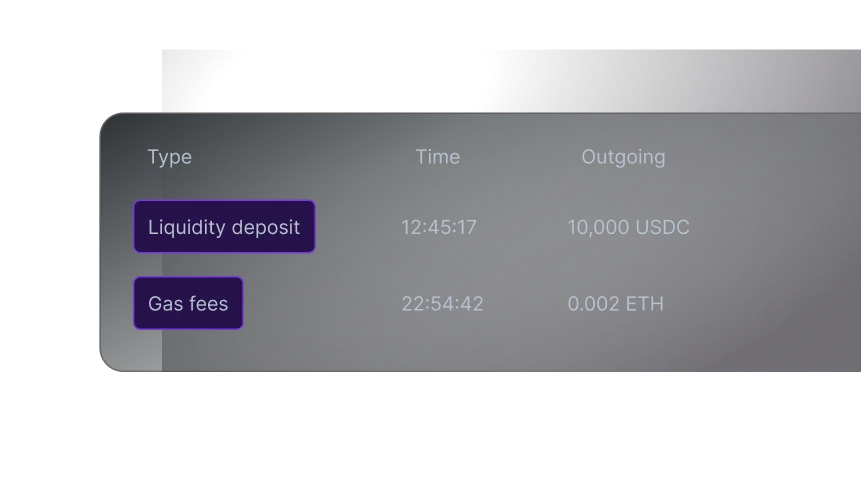



Accurate crypto taxes. No guesswork.







Official partners
Get started in 3 easy steps
.png)
Connect accounts

Review transactions

Get tax report
Why Summ?
Unified tracking and tax reporting for all your crypto assets across exchanges and wallets.



Why our users love us
From casual traders to seasoned pros, we’re making taxes less taxing.



The complete crypto tax solution
All in one portfolio tracker

Automatically identified tax-saving opportunity


Built for speed


Complete DeFi support


Tailored support for
Don’t waste hours combing block explorers and drowning in spreadsheets — import transactions automatically from over 3,500+ sources.

Frequently asked questions
How does the CRA treat cryptocurrency for tax purposes?
The Canada Revenue Agency (CRA) views cryptocurrency as a commodity, similar to a precious metal like gold. This means it's not considered legal tender like the Canadian dollar. How your cryptocurrency transactions are taxed depends on why you're using it. If you occasionally buy and sell cryptocurrency for investment purposes, any profits or losses are generally considered capital gains or losses. On the other hand, if your activities are more frequent, involve mining or staking, or are done with a profit motive, your cryptocurrency transactions may be considered business income or losses. The CRA requires you to report all taxable cryptocurrency transactions. This includes selling cryptocurrency for Canadian dollars or another cryptocurrency, using cryptocurrency to buy goods or services, receiving cryptocurrency as payment, and earning cryptocurrency from mining or staking. Failing to report these transactions can result in penalties or audits.
What are the tax implications for crypto-to-crypto trades in Canada?
The CRA considers crypto-to-crypto trades as dispositions. This means each trade triggers a capital gain or loss, even though you haven't received any Canadian dollars. To calculate the gain or loss, determine the adjusted cost base of the cryptocurrency you're disposing of and calculate the proceeds of disposition using the fair market value (in Canadian dollars) of the cryptocurrency you're acquiring.
Do I need to pay GST/HST on cryptocurrency transactions?
GST/HST may apply to cryptocurrency transactions in certain situations. If your business accepts cryptocurrency as payment for goods or services, you need to charge GST/HST. The tax is calculated on the fair market value of the cryptocurrency at the time of the transaction. Since the CRA treats crypto as a commodity, accepting it as payment is considered a barter transaction. Both parties involved in the barter may need to account for GST/HST. GST/HST generally doesn't apply to personal cryptocurrency transactions unless your activities are considered a business.
What happens if I fail to report cryptocurrency on my taxes in Canada?
Failing to report your cryptocurrency transactions can have serious consequences. The CRA can impose penalties and charge daily compound interest on any unpaid taxes. You may be subject to a tax audit, and in severe cases, you could face criminal charges. If you realize you made a mistake or omission on your tax return, you can correct it through the CRA's Voluntary Disclosures Program. This allows you to come forward and disclose the information before the CRA starts an audit. It's always best to be proactive and report all your cryptocurrency activity accurately and on time.
How does the free trial work?
The platform is free to use immediately upon signup, allowing you to import your transactions and take advantage of our smart suggestion and auto-categorization engine, portfolio tracking, DeFi and NFT support. For access to reports, the tax loss harvest tool or chat and priority support, you will need to upgrade to the appropriate paid plan.
Learn from experts


Try summ today
Import your transactions and generate a free report preview.


















































































































































































